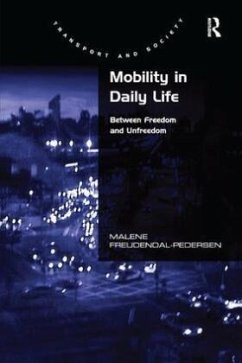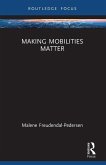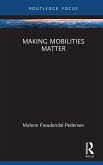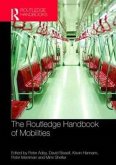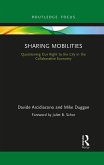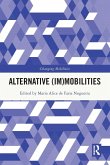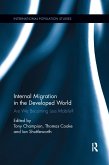Why do we choose specific modes of transport and what are the perceived rationalities for our choice? How are different theoretical concepts within mobility research actually perceived and lived in everyday life? At this book's core is a conceptual and empirical contribution to critical mobility research. It focuses on the tension between freedom and unfreedom, articulated through the dichotomy between individuality and community, as well as critical perspectives on the multitude of unintended consequences of mobility. In a range of everyday life narratives, this tension is analyzed through the concept of 'structural stories'. In teasing out the ambivalences of late modern everyday life, Malene Freudendal-Pedersen exposes how mobility both generates and helps to overcome and live with these ambivalences.
'This is a clever book which uncovers the structuring powers of ambivalent mobilities between autonomy and heteronomy. The author treads new paths to deconstruct mobility and transport routines. Read it, and the travelling worlds around will sparkle in a different light!' Sven Kesselring, Technische Universität München, Germany 'In this novel book Malene Freudendal-Pedersen most interestingly examines the significance of "structural stories" in explaining how people come to travel in significantly different ways and with such fateful consequences for the wider society.' John Urry, Lancaster University, UK 'Through careful qualitative research into the everyday explanations people give for their transport choices, Freudendal-Pedersen reveals how people produce car-dependent lifestyles despite ambivalent feelings about traffic, pollution, and security. This thoughtful and sensitive investigation of alternative 'structural stories' of mobility, freedom and community ultimately moves towards a hopeful vision of how to achieve more sustainable mobilities.' Mimi Sheller, Swarthmore College, USA '...a valuable addition to discussion on why and how everyday mobility in general and choice of mode of transport in particular has been elevated to the level of basic human right of freedom and intertwined with the fundamental human aspiration of happiness. ' Australian Planner 'The book provides a useful window on the state of Scandinavian research in the field of mobilities; it should also be of interest to those with interests in automobilities and transportation decision making beyond Scandinavia.' Singapaore Journal of Tropical Geography

